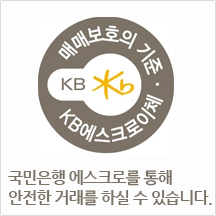An Observational Study of Operational Efficiency and Customer Satisfac…
페이지 정보

본문
Abstract: This observational research study examines the operational efficiency and customer satisfaction levels of "AquaFlow Plumbing," a medium-sized plumbing company operating within a defined geographical area. Data was collected through direct observation of field technicians, analysis of customer reviews, and interviews with company management. The study explores the relationship between operational practices, including response time, technician expertise, and equipment utilization, and the resulting customer satisfaction. Findings suggest areas for improvement in scheduling efficiency and communication protocols to enhance both operational efficiency and customer experience.
Introduction: The plumbing industry relies heavily on efficient operations and high customer satisfaction to maintain profitability and a positive reputation. This study focuses on AquaFlow plumbing company charlotte nc (wikipedia reference), a locally established company, to understand the interplay between operational practices and customer perception. By observing various aspects of the company's operations, we aimed to identify strengths and weaknesses that contribute to overall performance. This research contributes to a better understanding of the factors influencing success in the service-based plumbing industry.
Methodology: This study employed a mixed-methods approach, combining observational data with qualitative data gathered through customer reviews and interviews.
Direct Observation: Over a four-week period, researchers observed the activities of AquaFlow Plumbing's field technicians. Observations included response time to service calls, time spent on-site, the efficiency of repairs, and the technician's interaction with customers. Data was recorded using a structured observation checklist, noting the time spent on each task and any observed issues. A total of 30 service calls were observed.
Customer Review Analysis: Customer reviews from online platforms (Google Reviews, Yelp) were analyzed to gauge customer satisfaction. A total of 150 reviews were collected and coded for themes related to response time, technician professionalism, quality of work, and overall satisfaction. Sentiment analysis was used to quantify the positivity or negativity of each review.
Management Interviews: Semi-structured interviews were conducted with the company manager and two senior technicians. These interviews explored internal operational processes, challenges faced, and strategies employed to improve efficiency and customer satisfaction. The interviews were audio-recorded and transcribed for analysis.
Results:
Response Time: The average response time to service calls was 2.5 hours, with a significant variation depending on the time of day and the urgency of the call. Observations revealed that scheduling inefficiencies contributed to delays in some cases.
Technician Expertise: Observations indicated a high level of technical expertise among the technicians. Repairs were generally completed efficiently and effectively. However, there were instances where additional tools or parts were required, leading to delays.
Equipment Utilization: The company's equipment was generally well-maintained and utilized effectively. However, there were instances of downtime due to equipment malfunction, highlighting the importance of preventative maintenance.
Customer Satisfaction: The analysis of customer reviews revealed a generally positive sentiment towards AquaFlow Plumbing. Customers frequently praised the professionalism and expertise of the technicians. However, negative reviews often highlighted issues with scheduling and communication. Delayed response times and a lack of proactive communication were recurring themes.
Management Perspectives: Interviews with management revealed awareness of scheduling challenges and a commitment to improving communication protocols. They highlighted the difficulties in accurately predicting the duration of service calls and the impact of unexpected issues on scheduling.
Discussion:
The findings suggest a complex interplay between operational efficiency and customer satisfaction. While AquaFlow Plumbing demonstrates high levels of technical expertise and customer satisfaction overall, improvements are needed in scheduling and communication. The observed variations in response time highlight the need for a more robust scheduling system that can better accommodate urgent calls and accurately predict service call durations. Improved communication protocols, such as proactive updates to customers regarding estimated arrival times and potential delays, could significantly enhance customer experience.
The observed instances of equipment malfunction underscore the importance of preventative maintenance to minimize downtime and ensure operational efficiency. Investing in training programs that focus on efficient work practices and effective communication could further enhance both operational efficiency and customer satisfaction.
Conclusion:
This observational study provides valuable insights into the operational practices and customer satisfaction levels of AquaFlow Plumbing. The findings suggest that while the company excels in technical expertise, improvements in scheduling efficiency and communication protocols are crucial for optimizing operational performance and enhancing customer experience. Further research could explore the implementation of new scheduling software and customer relationship management (CRM) systems to address these identified weaknesses. The findings of this study can be generalized to other medium-sized plumbing companies, highlighting the importance of a holistic approach that considers both operational efficiency and customer satisfaction for long-term success.
Limitations: The study's scope was limited to a single plumbing company within a specific geographical area. The findings may not be generalizable to all plumbing companies. The four-week observation period may not be sufficient to capture the full range of operational variations. Further research with a larger sample size and longer observation period is recommended.
- 이전글Medical & Cosmetic Services in Iran - Iran Health Agency Official Site 25.08.02
- 다음글A Few Things To Learn About Your Hybrid Car Battery Pack 25.08.02
댓글목록
등록된 댓글이 없습니다.


